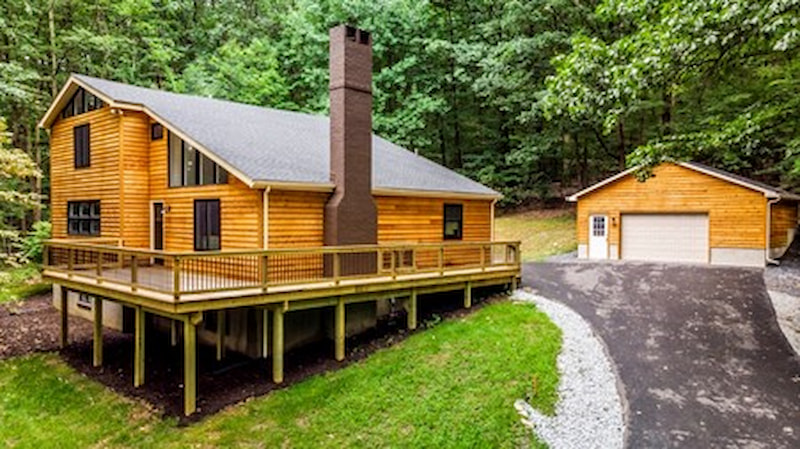May 7th, 2019. Mark Hughes
Zero Deposit Mortgages: Are They The Answer?
Often blamed for the 2008 financial crash, zero deposit mortgages are now seen as a relic of the past. By inflating the housing bubble to unsustainable levels, these “monster mortgages” are now seen as a form of reckless lending. Essentially, the pre-2008 laissez-faire attitude allowed borrowers to take out 100% LTV loans with little to no deposit, thus leading to breakdowns in payments, house price inflation and a large loss of jobs. Comparative to the housing market then, the current landscape can look a little too conservative and safe, but avoiding zero deposit mortgages is essential to maintaining a healthy, functioning housing market.

Zero Deposits and Risk
To find a zero deposit mortgage in the market today you’ll have to look especially hard. After the banking and lending sector took a good look at itself following the financial crisis, a new set of standards were created to keep the housing market in check: no more jumbo-sized mortgages, no more 100% LTV loans, a specific requirement for large deposits and a generally stricter vetting process.
Touch wood, these new standards are working well, but the need for large deposits combined with rising house prices has left some first-time buyers in the cold. Hence, some lenders and analysts are calling for a return of the zero-deposit mortgage, in order to help people to get out of the never-ending renting bubble.
Zero Deposit Options
There are some lenders, though, that do offer something close to a zero-deposit mortgage. Guarantor mortgages, for example, act as a soft zero deposit mortgage, as the borrower doesn’t have to pay a deposit up front. However, guarantor mortgages rely on the “bank of Mum and Dad” or a wealthy guardian. Essentially, a home-owning family member or guardian is named on the mortgage as well, they take on all the risk via their own property or savings. That way, if the borrower fails to make payments, then the lender takes action against their guarantor.
Riskier options include taking out a personal loan to pay for the deposit. This is not recommended, though, and almost every lender will frown upon a candidate with no savings taking out a loan to pay for a mortgage. The combination of paying off a mortgage and a loan simultaneously is often too much strain for most households who cannot afford a deposit, too.
There are some niche mortgage options out there with very small deposit rates, with some as low as 5%. These mortgages, though, often come bundled with unique requirements, so are reserved for those on the higher end of the financial scale. Clydesdale Bank led the way with these types of mortgages last year. Clydesdale stated that a 5% deposit is acceptable, but it required the borrower earn £40,000 a year, minimum, as well as being qualified in a list of professional, safe jobs in sectors like accountancy, architecture and the medical industry.
Government Scheme Alternatives
There are two government schemes that can help those who are struggling to raise a deposit: Shared Ownership Mortgages and Help-to-Buy Mortgages.
Shared Ownership Mortgages
Shared ownership mortgages were created to help lower income households get on the property ladder. A household will take out a mortgage for a share of the home they wish to buy, while paying rent on the rest. Over time, as income increases and the mortgage share is paid off, a household can own more and more of the property. This scheme can allow you to live in a house that would usually be beyond your means, as well as helping you get on the property ladder. In order to qualify for this scheme, you must be a first-time buyer and earn under £80,000 a year (£90,000 in London).
Help-to-Buy Mortgages
The Help-to-Buy scheme differs from Shared Ownership as it is essentially a government loan. To qualify, you still need to pay 5% of the deposit yourself The government will then top this deposit up to 25%, opening up options for cash-strapped first-time buyers. So, if you wanted to purchase a property valued at £150,000, you’d need to save £7,500, then the government would loan you £30,000 to make up a £37,500 deposit. While you will need to pay the government back over time, this is an excellent option to obtain good mortgage rates while only having to amass a relatively small deposit.
Overall, zero deposit mortgages may make sense when you’re experiencing desperation, but generally they are just too much risk for lenders and borrowers alike. However, as we’ve shown, there are options for those struggling.
If you feel as though raising funds for a deposit is too much, then we can help. If you’re worried about your bad credit or you can’t make headway with mainstream lenders, contact our experienced residential mortgage brokers.
As always, think carefully before securing debt against your property.
Article By Mark Hughes
May 7th, 2019
Mark has 15 years’ experience within the financial industry working for high street banks and specialist brokers and now focuses on Bridging finance and Second charge loans.
He would describe his style of brokering as being heavily based on knowledge and efficiency.
See more articles by Mark




